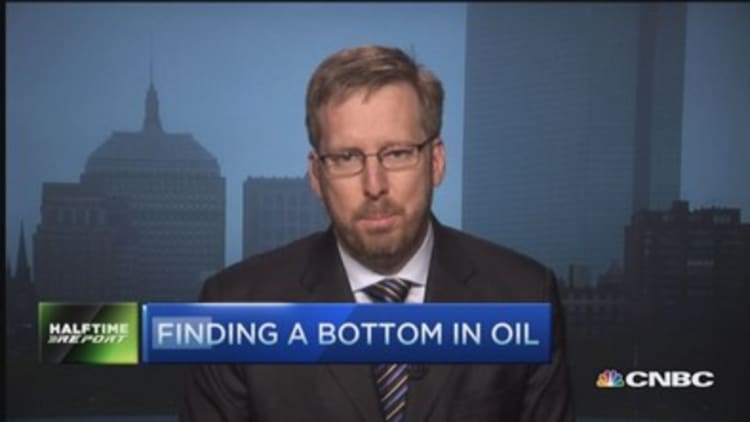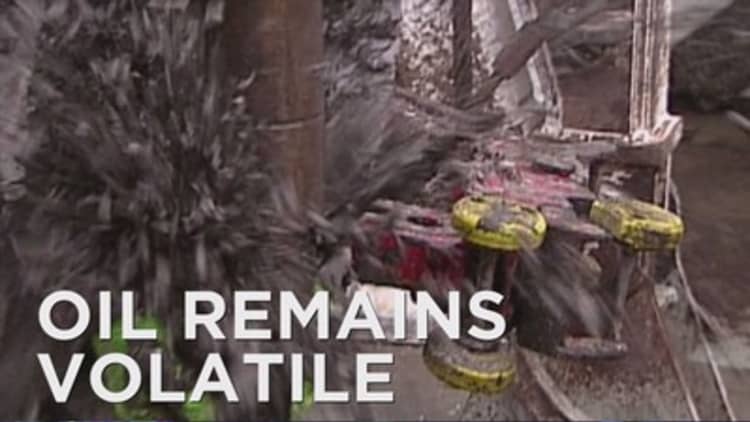
Oil prices rose on Thursday as strong German economic data and continued uncertainty about an agreement on Iran's nuclear program provided lift a day after crude futures tumbled 6 percent.
U.S. crude closed up 37 cents, or 0.73 percent, at $50.79 a barrel, while Brent crude was rose about $1 to $57.80.
Both benchmarks dropped around $3.50 on Wednesday.
Brent crude jumped more than 2 percent earlier as European equities strengthened on German industrial output and trade data, and as Greece said it will pay a loan tranche to the International Monetary Fund.
Also supportive were comments from Iran suggesting Tehran will only sign a final nuclear accord with six world powers if all sanctions imposed over its disputed nuclear program are lifted on the same day.
Read More Shell gambles on rocky Brazil, Petrobras with BG bid
"The German data provided some lift early because it comes even before the expected economic boost from central bank quantitative easing and any sign that an agreement with Iran isn't going to get done is bullish," said Phil Flynn, analyst at Price Futures Group in Chicago.

"Huge volatility has been the name of the game in the past few days," said Carsten Fritsch, senior oil and commodities analyst at Commerzbank.
Brent's close-to-close price volatility is at levels last seen during the height of the global financial crisis of 2008/2009, Reuters data shows.
Read More These energy stocks are rooting against crude oil
Wednesday's data showing U.S. crude inventories grew by 10.95 million barrels to a record 482.4 million barrels last week, the biggest weekly gain in 14 years, helped limit U.S. price gains.
News late Tuesday that Saudi Arabia's production rose to 10.3 million barrels a day (bpd) in March also contributed to crude's 6-percent tumble on Wednesday.
An adviser to Saudi oil minister Ali al-Naimi struck a hopeful note on Thursday, saying that the price slide was temporary and that global oil demand was expected to grow annually by up to 1 million bpd.
Iranian oil minister Bijan Zanganeh said in Beijing on Thursday that OPEC would "coordinate itself" to accommodate Iran's return to oil markets without causing a price crash.
Read More Look here for next energy sector merger: Analyst
OPEC's strategy of holding output steady is not working and members should discuss production levels before June's meeting, Zanganeh said.
OPEC's ability to coordinate will be under scrutiny as the situation in Yemen and other conflicts in the region keep relations between Iran and Saudi Arabia tense.

